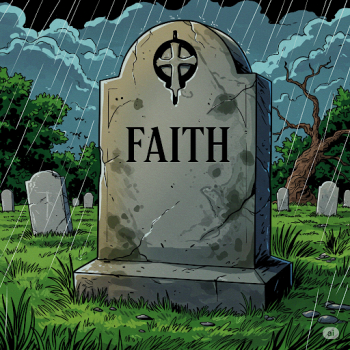
The account of Cain and Abel ranks among the most well-known narratives in the Bible, often transformed into moral lessons in settings such as children’s church and the main morning service. This narrative teaches us that we have a choice in life: to follow God’s way and receive blessings or to give in to our natural impulses and sin, which results in negative consequences.
However, there is some ambiguity in the story, as many people do not fully understand the issue with Cain’s offering, leading them to either quickly skip over it or avoid discussing it altogether. While it may not change the overall message, understanding where Cain went wrong can better equip us to serve God in our own lives.
Therefore, in this post, we will seek to uncover what God actually conveyed to Cain, which will clarify how Cain sinned against God and can enhance our understanding of other biblical passages and sin in our own lives. Let’s begin by reviewing some common translations and interpretations of Genesis 4:7.
Background and Common Interpretations
Following their departure from the garden, Adam’s wife became pregnant and gave birth to two sons. The first was named Cain, and the second was named Abel. Abel was responsible for the flocks, while Cain worked the soil. At one point, Cain made an offering to the Lord from the produce of the land. Abel, too, presented an offering, consisting of the firstborn of his sheep and their fat.
The Lord looked favorably upon Abel’s offering but did not accept Cain’s. As a result, Cain was filled with grief, and his demeanor changed. The Lord then asked him why his “face” had fallen. Why had his expression changed? Below are God’s remaining words, as translated and interpreted from several different English translations.
If you are doing what is good, shouldn’t you hold your head high? And if you don’t do what is good, sin is crouching at the door — it wants you, but you can rule over it.” —Gen. 4:7 CJB
If thou doest well, shalt thou not be accepted? and if thou doest not well, sin lieth at the door. And unto thee shall be his desire, and thou shalt rule over him. —Gen. 4:7 KJV
If you do what is right, will you not be accepted? But if you do not do what is right, sin is crouching at your door; it desires to have you, but you must rule over it.” —Gen. 4:7 NIV
Is there not, if thou dost well, acceptance? and if thou dost not well, at the opening a sin-offering is crouching, and unto thee its desire, and thou rulest over it.’ Gen. 4:7 YLT
Whether not if thou shalt do well, thou shalt receive well; but if thou doest evil, thy sin shall be present anon in the gates? but the desire thereof, that is, of sin, shall be under thee, and thou shalt be lord thereof. (If thou shalt do well, then thou shalt be accepted; but if thou doest evil, then at once thy sin shall be present at the gates, and the desire of sin shall take thee under, and so thou must be lord of it, or rule over it.) — Gen. 4:7 WYC
Despite some insight offered by these translations, we should reexamine certain aspects. While I’m not an expert in Greek, Hebrew, or even English, I do feel I have a gift for recognizing and confronting things that make no sense and at least attempting to make sense of them. This tendency of mine has often landed me in hot water, but it is what it is. Things ought to be logical. That’s just where I’m at in life. Especially, when it comes to the Word of God.
So, while I believe YLT and WYC are closest to the true meaning, none of these translations are sensible; so, let’s stop being complacent and pretending otherwise. To start, regarding the statement, “If you are doing what is good, shouldn’t you hold your head high?” (CJB), what is the purpose of God saying this? The truth is that Cain did not do what was good, which is why his head was justifiably downcast. Additionally, where is the humility? When one does what is right, they’re just doing what they’re supposed to be doing. They shouldn’t be proud of that and hold their head high.
“Does the servant get thanks for doing what he was told to do? I am sure he does not. It is the same with you also. When you do everything you have been told to do, you must say, ‘We are not any special servants. We have done only what we should have done.’” —Lk. 17:10 NLV
Regarding the other translations, the term “acceptance” appears to have been chosen as the equivalent of a Hebrew noun that signifies “a lifting up” or “an elevation.” This interpretation seems to have emerged from some viewing this “lifting up” as a favorable change in Cain’s previously fallen expression. According to those who consider it “acceptance,” God would accept Cain’s offering if he did what was right, leading to his face being lifted; perhaps referring to a smile, I suppose
Beyond the apparent issues, the main concern is that this interpretation is a considerable stretch from the word’s actual meaning. Moreover, the phrasing suggests a contrast is being established. Thus, if one action results in acceptance, the expectation is that the opposite action should lead to rejection. Instead, we find sin, personified, lying in wait at Cain’s door— an outcome that is out of balance with the positive one.
And what is “sin”? Sin is a mistake, a failure, or an error. It is “missing the mark” or falling short of God’s standards. Thus, if one fails to do what is right, they have already sinned or erred. So, why is sin described as lying in wait or crouching at the door, with some translations even suggesting it’s “ready to pounce?” For what purpose? It already has one foot in the door. It doesn’t need to lurk at the door for a chance to strike. And what exactly is this door? What is it supposed to represent? Do you understand my concern?
Fortunately, there are translations and interpretations that are coherent and clear, which this post will explore. We will begin by studying the verse in the Septuagint, the Greek version of the Old Testament. Then, we will determine the most plausible translation and interpretation and compare them with the Hebrew text. Lastly, we’ll discuss if it has any implications for us today. So, with all of that in mind, let’s get started.
Analyzing the Language: What Was Actually Said?
Genesis 4:7 in the Septuagint generally reads as follows:
οὐκ, ἐαν ὀρθῶς προσενέγκῃς, ὀρθῶς δὲ μὴ διέλῃς, ἥμαρτες; ἡσύχασον· προς σὲ ἡ ἀποστροφὴ αὐτοῦ, καὶ σὺ ἄρξεις αὐτοῦ.
First, the expression οὐκ ἐαν, can be translated as “not if,” which may indicate the initiation of a question. The word ὀρθῶς serves as an adverb in this verse, meaning “right, upright, true, straight, or correct,” and therefore, can be translated as “rightly.” The verb προσενέγκῃς means “to bring to, offer, or present,” while διέλῃς translates to “divide, distribute, or distinguish,” and can also mean “separate.” Both verbs are in the 2nd person singular, aorist tense, and subjunctive mood.
The last term, ἥμαρτες, is a verb in the indicative mood meaning “to sin.” Therefore, the phrase οὐκ ἐαν ὀρθῶς προσενέγκῃς, ὀρθῶς δὲ μὴ διέλῃς ἥμαρτες could be translated as: “Not if rightly you have brought, but rightly not you have divided you have erred?” Essentially, if you perform “A” correctly but not “B,” isn’t it true that “C” follows?
Continuing on, the verb ἡσύχασον is a command meaning “to remain quiet, still, or at rest.” Thus, Cain is being instructed to “Keep still.” Next, the preposition προς can have multiple interpretations, with “to” or “toward” being the most common. Given the context of the passage, I have opted to translate it as “approaching.” Following that, the pronoun σὲ translates to “you.” Thus, the words ἡσύχασον προς σὲ could be interpreted as “Keep still. Approaching you…”
Why was Cain told to remain quiet, still, or at rest? It was because something threatening was either near him or approaching. But what was it? In the phrase ἡ ἀποστροφὴ αὐτοῦ, the noun ἀποστροφή signifies “a bending or twisting, or a diversion.” This word, transliterated as ăpostrophḗ, is used to refer to the punctuation mark in English represented by a small dot with a tail that curves inward. Essentially, ăpostrophḗ, signifies a “turning,” which can encompass a turning back, turning away, or turning toward. It can imply a shift in focus from one thing to another, or a change in one’s direction.
The Hebrew word, teshequa, which appears in this verse of the Hebrew Bible, as the equivalent of ăpostrophḗ, translates to “desire,” reflecting a sense of longing or craving. It suggests a sense of “running after” or “stretching out” towards someone or something. It can also indicate a change in one’s course. Teshequa appears only three times in the Hebrew Bible: in Genesis 3:19, Genesis 4:7, and Song of Songs/Solomon 7:10.
I belong to my beloved, and his desire is for me. — Song. 7:10 NIV
16 To the woman he said, “I will greatly increase your pain in childbirth. You will bring forth children in pain. Your desire will be toward your husband, but he will rule over you.” —Gen. 3:16 CJB
In the Song of Solomon, the woman expresses that she belongs to her beloved. It’s worth noting, that during that time, it was typical for men, particularly kings, to have multiple wives and concubines, while women were expected to remain loyal to one man. Thus, in the context of a sexual relationship, she truly belonged to him, even though he likely did not “belong” solely to her.
Nonetheless, his attention shifted towards her, indicating he had turned away from others to concentrate primarily on this one woman. Thus, his turning, or his focus was toward her, interpreted by translators as “his desire.” We’ll examine Genesis 3:16 in the next post, but the essential point is that while both the Hebrew and Greek can be interpreted as “desire,” Genesis 4:7 refers to a form of “turning.” Therefore, ἡ ἀποστροφὴ αὐτοῦ can be understood as “the turning of it.”
Next up is the the verb ἄρξεις which means “to be first, to govern, to lead, or to rule.” The phrase καὶ σὺ ἄρξεις αὐτοῦ could be interpreted literally as “and you will rule over it,” or it might be framed as a question: “and will rule you over it?” Given the narrative’s outcome, I have chosen the latter interpretation. In the context of the passage, the word ἄρξεις suggests that Cain is to take control of something.
Considering the meanings of these terms and their context, I propose that the best interpretation of Genesis 4:6-7 is as follows:
Why have you become deeply grieved and why has your countenance fallen? Is it not true that if rightly you have brought, but rightly you have not divided, you have erred? Keep still. The turning of it is approaching you. And will you rule over it?
I chose not to translate it as “Keep still. The turning of it is approaching you and you will rule over it,” interpreting the turning in a favorable light as a shift in the situation that Cain would eventually dominate, because it would imply that God is lying, given that this is not what Cain did. At this stage in the story, the future is unclear, so the most sensible interpretation is that the latter portion of the verse was presented to Cain as a question.
Again, I acknowledge that I am not an expert in any language, so if you are, I invite your critiques and corrections. I genuinely welcome your input as I am more concerned with discovering the truth than being right. However, despite any inaccuracies, I believe this translation reasonably captures the intended message. Now, let’s explore how this can be accurately understood within the context of our passage.
How Should It Be Understood?
In our effort to comprehend the message of the key passage, we will analyze it section by section. To begin, the Greek text indicates that “after” days, which in the Hebrew can be translated as the “end” or “conclusion” (of) days,” which some interpret as referring to a harvest period, Cain brought an offering to God. Abel, his brother, also brought an offering. However, it is not exactly clear when Abel brought his offering. Nevertheless, God looked favorably upon Abel’s offering but paid no attention to Cain’s.
As a result, Cain found himself wrestling with emotions such as grief, possible jealousy, discouragement, and anger. His countenance had fallen, reflecting a downturn in his emotional state. It wasn’t just that he wore a frown; “countenance” encompasses his overall behavior and conduct. Due to the issues with his offering, Cain’s actions had deviated from a state of moral uprightness. His moral integrity had notably diminished, leading him down a troubling path.
When God speaks to Cain, he questions why Cain is upset and why his demeanor has changed. However, he isn’t looking for an answer; he is looking to make a point. A mistake in how Cain presented his offering led to his offering being rejected, and Cain didn’t seem ignorant of the process. This is evident from God’s rhetorical question: Isn’t it true that if you have done right by offering, but failed to correctly distribute or allocate it, you have sinned?
Based on the context, we can infer that Cain understood this principle. Therefore, he had no right to be angry; but if he were angry, he couldn’t rightfully blame anyone but himself. That’s what I think God is trying to convey.
Rejection Is for Correction
It is important to recognize that God’s rejection of Cain was intended for correction and was not done out of malice or pettiness. Would it have been right for him to let him continue in error? So, he God rejected him in order to correct him. Essentially, he is attempting to teach Cain a lesson and leading him to acknowledge and affirm his understanding of a rule or principle he should have already known. But what did Cain actually do wrong?
If we revisit the beginning of the same chapter, we find vital information that is often overlooked. In my case, prior to studying this, I paid absolutely no attention. As far as I knew, it wasn’t important to the account, and I was satisfied with the explanation that Cain hadn’t offered a blood sacrifice or that what he brought God was cursed since God had cursed the ground, and this was why his offering was rejected.
The thing is, I didn’t know any better—and how can one seek to know what they don’t know that they should know? That is why God has provided teachers. Their job is to teach not to make us feel good or to argue current events. Today, “biblical teaching” is not prepared based on study and truth, but by how many views, likes, or followers one believes they can gain from the message. As a result, the church of God remains ignorant and lacking.; but, I digress.
It states that both Cain and Abel made offerings to God, but Cain offered some of the produce from the ground, while Abel brought the firstborn of his flocks and their fat. Cain’s offering is portrayed as ordinary produce, whereas Abel’s is characterized as the best and first of what he’d gained. Consequently, God rejected Cain’s offering. And why shouldn’t he? Does anyone bring a gift suitable for a commoner to a king? Unlike his brother, Abel, Cain failed to rightly divide. But through faith, Abel did what was right. He trusted God by giving the first and best of what he had.
By faith Abel brought God a better offering than Cain did. By faith he was commended as righteous, when God spoke well of his offerings. And by faith Abel still speaks, even though he is dead. — Heb. 11:4 NIV
Cain’s Inner Struggle
After enlightening him , God gives Cain a command along with a warning. He instructs Cain to “Keep still,” and there is a significant reason for this. It suggests that Cain was on the brink of turning away. The phrase “turning of it,” likely refers to his countenance, which signifies more than a mere desire; it denotes a total transformation in Cain’s mindset and faithfulness to God; It refers to his already wavering behavior or conduct, and thus refers ultimately, to Cain himself. This turning away was precisely that—an act of turning away; a complete 180°. Caught up in his emotions, Cain was at risk of making a conscious choice to abandon God and his commandments.
I suspect this was not the first problem that led to Cain murdering his brother and rejecting God, but it seems to have been the peak; the moment that pushed him over the edge. He was deeply troubled, and his righteousness had waned. He was torn up on the inside. As human beings, we recognize that this isn’t the best mental state for making decisions, but grief, anger, and jealousy can drive one to act recklessly now and think twice about it later.
Fortunately, God understands this. Keep in mind that he knows the heart (1 Sam. 16:7; 1 Kgs. 8:39). He was aware of Cain’s mindset and appeared to be trying to steer him back on track. In his mercy, the Lord issued a warning to Cain: Be still. The hour of your turning away is imminent. It is upon you. Do not turn to the right or to the left. BE STILL. Why? Because if you stay still, you will not turn away.
Furthermore, the idea of lying down or crouching in readiness to strike could indeed be relevant here, but it pertains to Cain rather than sin. After all, while we can avoid and triumph over sin, become dead to it, and are not obligated to be its servants, can we genuinely exercise authority over sin? Are we truly able to rule over it? Does the Bible ever imply that we can? Should we even seek any relationship with sin, including one that involves governing it?
On the other hand, what the Bible does teach is that self-control is a fruit of the Spirit (Gal. 5:22-23). We have the ability to govern our own actions. Metaphorically, Cain was to be quiet and alert, as a deadly predator lurked nearby—his very own ego—and if it drew too close, it could consume him.
Therefore, he should be prepared to counter it and assert control before it brings him down. In reality, here is what it would look like: Put an end to your sorrow, anger, and malicious thoughts. Take those thoughts captive. Humble yourself and do not allow them to overpower you. Remain calm and be at peace.
Following this warning, God follows a pattern seen throughout the Scriptures. He offers Cain the chance to acknowledge his choices, and to recognize an opportunity to escape this tragic outcome. The Lord inquires of Cain, “Will you rule over it?” In other words: “what-chu-gone-do?” Will you take control of it? Will you put it in its place? Or will you allow it to rule over you? Unfortunately, Cain was too consumed by his anger and pride to heed this warning.
Greek and Hebrew Comparison
Now, let’s examine this in relation to the text found in the Hebrew Bible. In the Hebrew Bible, the phrase “If you do well a lifting up,” which is often distorted to read, “If you do well, won’t you be accepted?” can be understood as “if you do right (an/the) offering,” since “lifting up” evokes the image of someone raising something to present it to another.
Furthermore, presenting an offering to a deity, serves as an act of honor and exaltation, which are additional meanings of the Hebrew term seeth. Therefore, “a lifting up” can signify “an offering,” which also conveys the sense of elevating or exalting God.
Moving on, we encounter the phrase “but if you do not do well at the ‘door.’” This term for door refers to a gate or entrance, or as rendered in Young’s Literal Translation, the “opening.” The most reasonable interpretation appears to be that if you do well by offering but fail to do so at the outset, or the opening, or as we might say “out of the gate,” by presenting the first and best produce of the harvest—it constitutes sin. It is a mistake, an error.
Although phrased differently, the verse conveys the same concept as the Greek. He did not appropriately allocate his gains and present them at the right time, which was thus an error. Next, we consider the verb rabats, which, similar to the Greek verb ἡσύχασον, means to lie down or rest, reflecting God’s command to Cain to rest or remain still.
My understanding is that there are differences in how this term is translated and understood in Hebrew versus Greek. When I am unsure, I tend to favor the interpretation that makes the most sense. As I previously indicated, we do not rule or govern sin; we are not leaders of it, nor do we command or control it. Therefore, the Greek version is the most biblically correct. The remainder of the passage is essentially as clear-cut as the Greek.
Another Possibility
Still, I believe there is yet another perspective on the verse. While the first interpretation suggests a positive view of ruling, it could also be interpreted negatively. If this is the case, then the term ἄρξεις likely indicates being first or a leader. In this light, God might be cautioning Cain to remain still, but rather than posing a question, he would be declaring what is to come: “Be still. The turning of it (referring to his conduct; fully embracing sinful behavior) is approaching, and you will lead over it.”
Cain must abandon any evil intentions, for failing to do so would mean he turns away from God and becomes a leader in a rebellion, potentially leading others astray. As we know, Lamech, a descendant of Cain, committed murder (Gen. 4:19-24). Jude mentions that ungodly people who succumbed to rebellious ways, had “followed “the way of Cain.” (Jude 1:11)
The “turning (away)” that God warned Cain about is indeed the “way of Cain.” It is a path that leads away from God with Cain serving as a leader of it, just like his mother Eve. This may explain why the Lord expelled him from his presence—to remove his influence; and why he marked him to protect him–perhaps he wanted to discourage this murderous behavior from spreading.
Nevertheless, God urges Cain to take control of the evil festering in his heart, attempting to guide him towards righteousness. Unfortunately, Cain’s subsequent actions, as revealed in the next verse, show us his response: But Cain said to his brother Abel, “Let us go through the field…” (Gen. 4:8), and we know he ultimately rose up and killed his brother.
Rather than owning up to his mistake and correcting it, Cain directed his anger at others, even though he was the one responsible for his own rejection. By giving in to his natural impulse and ignoring the Lord’s warning, he committed murder, leading to his banishment from God’s presence.
Conclusion
Basically, Cain triggered the chain of events that led to his own ruin. He made an error with his offering, and while we all make mistakes, often out of ignorance, what Cain did next was more than just a sin; he turned his back on God. Even though he knew the right course of action, received attempts to correct him, and was given a clear warning from God, he chose to shut his ears and heart, ignoring the guidance and following his own impulses, which led him to murder his innocent brother. In doing so, he rejected his Creator. It was this act, not his sin in presenting his offering, that caused his downfall.
By willfully rejecting God’s corrections, warnings, and commandments, Cain turned away from God. Furthermore, if the command to love your neighbor as yourself is the second greatest commandment next to loving God, then it follows that murdering your neighbor, especially your innocent and righteous brother, must be the second greatest sin after rejecting God. Cain willingly did both; and in no way could he attribute it to ignorance.
God’s purpose is to save lives, not to destroy them. He sent his Son, Jesus Christ, into the world not to condemn it but to save it. Following his commandments leads to life, but we bring about our own destruction when we reject these teachings. If Cain had simply denied himself and heeded the voice of the Lord, the outcome would likely have been far more favorable for him, as our God is compassionate and forgiving.
Lessons For Today
As for us, what can we take away from this? First, we should aim to offer God the best and first of everything we possess, recognizing that all we have is a gift from him. Loving God with all our resources (Deut. 6:5; Mrk. 12:30) may encompass the time we are granted on this earth, our strength, intellect, finances, and social influence, among other things. Any blessings that we receive are gifts from a gracious and loving Creator, so we must show our gratitude by giving back to him—not the rest of it; but the best of it.
The second thing we can take away is that even if our actions are good and come from a sincere place, if they do not align with God’s guidance, we have sinned or made an error. That’s just the fact of the matter. What can we do about it? Fortunately, God corrects those he loves (Heb. 12:6), allowing us to learn from our mistakes and work towards improvement.
The key is to practice humility and accept his correction rather than becoming consumed by our hurt, anger, and negative feelings, which could lead us into serious sin and cause us to stray completely from God and his teachings, resulting in grave consequences—- whether physical or eternal.














